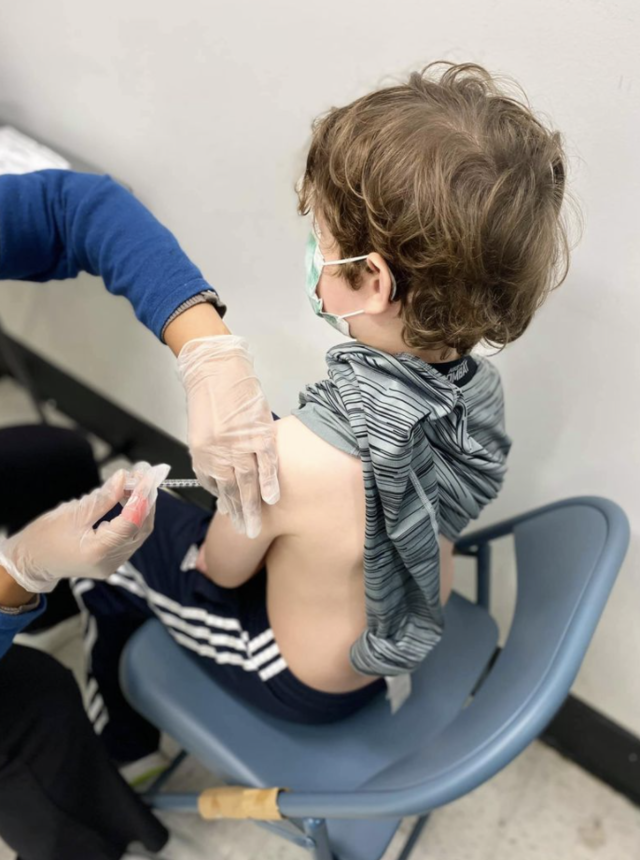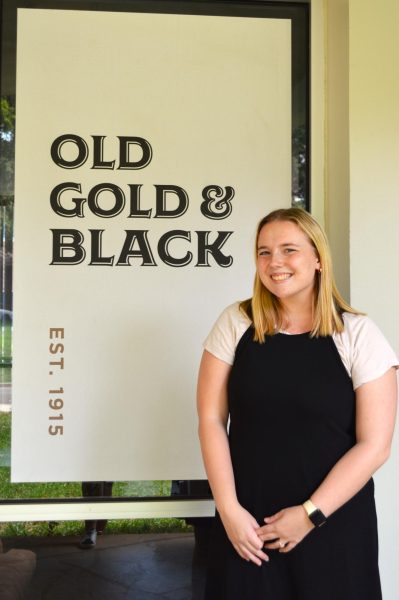As a liberal arts college, one of Wofford’s core missions is to provide its students with an educational experience founded on both STEM and humanities.
Interfaith Youth Core (IFYC)’s COVID-19 Faith in the Vaccine Ambassadors program is a way that both Reverend Ron Robinson and Jessalyn Story from the Center for Community Based Learning felt would assist students in accomplishing this type of education. They also hoped the program would make an impact in the Spartanburg community that Wofford students call home for the duration of their undergraduate experience or longer.
Douglas Clark, visiting assistant professor of Religion, applied for the educator lead position and was selected to lead this initiative for Wofford College.
This project was first led across the country from Aug. 2021 through Jan. 2022. The second wave, reaching the east coast, has participants from fifteen colleges across South Carolina, including Clemson University and Furman University, and will last from Feb. 2022 through Aug. 2022.
Robinson, Story and Clark selected the student ambassadors the week of Feb. 14. Students completed training on Feb. 20, with numerous participants delaying due to Wofford’s sorority and fraternity bid day. After the training is complete for all members, they will attend a biweekly meeting to address their strategy, concerns, etc.
“Part of the training is research on how you talk to people about stuff like this… being a good listener, not talking down to people, actually listening to people’s concern about vaccine hesitancy,” Clark explained.
There needs to be empathy when working with this and any group of people, especially about concerns that are so genuine, such as healthcare decisions.
The students selected to participate as ambassadors include Messiah Moring ‘25, Kai Beckett ‘25, Yohana Peralta Galindo ‘25, Grayson McDowell ’24, Willa Thomas ‘25, Luke Mabry ‘25, Millie Spivey ’25 and Dalton Perry ’25. While these are the only paid positions available on the project, Clark also encourages people to reach out for various volunteer opportunities, as there is a large need to be met.
The main goal of this initiative is to increase both trust in and accessibility to the COVID-19 vaccine, especially in communities and areas in which vaccine hesitancy is rampant.
It is statistically shown, according to IFYA, that groups who have a decreased trust level for the vaccine correlate with those who hold strong religious beliefs.
As a way of addressing this issue, Clark is leading the initiative to collaborate with the Spartanburg County Baptist Association, which is African American Baptist Churches. Reverend Milfred Brock is the point of contact for Clark and also leads the Black Clergy Organization, which houses denominations aside from the Baptist.
It is with this connection that the ambassadors will plan events or join preexisting events as a way of impacting the community.
Clark explained that the white, conservative community was initially a part of the targeted audience for IFYA’s outreach, but the efforts were proven to be unsuccessful in comparison to other religious communities.
The Spartanburg Juneteenth event is one of the many ways that the ambassadors hope to make an impact. Clark says that they will attend this event to educate people on the vaccine and have healthcare professionals there to vaccinate the community.
The students will also participate in some of the fun aspects of the event, such as face painting, games, etc., as a way of interacting with the communities on all levels, building relationships and establishing trust.
Along with this established event, he hopes to place students or information sheets in barber/beauty shops and use Wofford athletes to make promotional videos for the vaccine, which has already been approved. These and additional projects are the largest part of this initiative.
Clark hopes that students will make a few mistakes, make a difference and, ultimately, learn something from the experience. As an educational institution, the goal is always for the students participating in any initiative to learn something to enhance their futures.
Spivey plans to pursue a career in medicine and has a strong interest in social justice and community engagement, so she is excited to be a part of a project that allows her to explore both interests.
“There’s definitely a big stigma in the community about vaccines and certain types of healthcare and how it’s not holy sometimes,” Perry said. “(There’s importance in) being able to recognize that you don’t have to be divided between your religion and your health and safety… Trying to erase that stigma would be really good.”
Spivey explains that, to her, religion and medicine are not mutually exclusive. She believes that God gave scientists the ability to craft these vaccines, so the community should take the dose. She wants to spread this belief and influence others in the community who hold hesitancy due to religious beliefs.
The two largest target areas are for unvaccinated children and adults without their boosters to get the shots, as those are statistically the lowest vaccination rates.
If anyone finds interest in this topic and wants to make a difference in the community, please reach out to Douglas Clark at [email protected].































